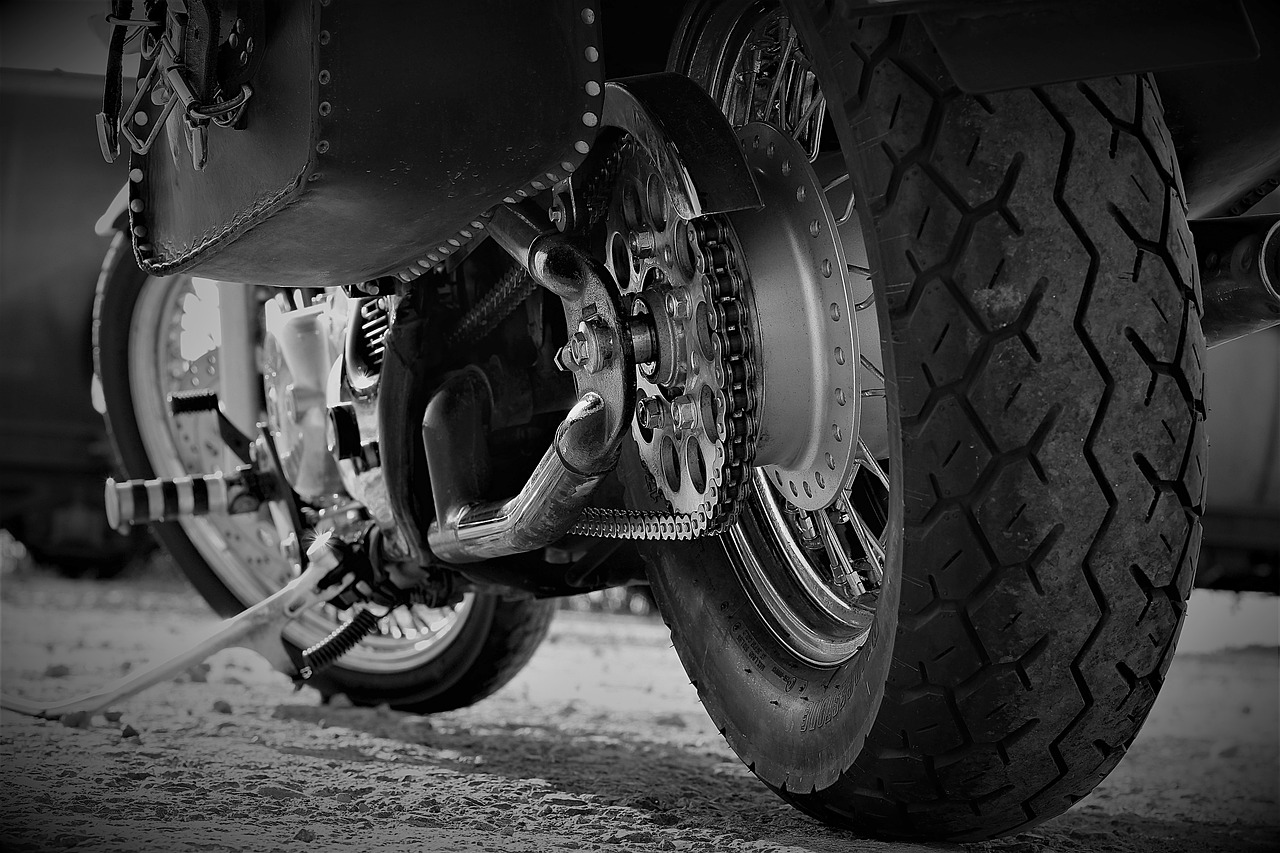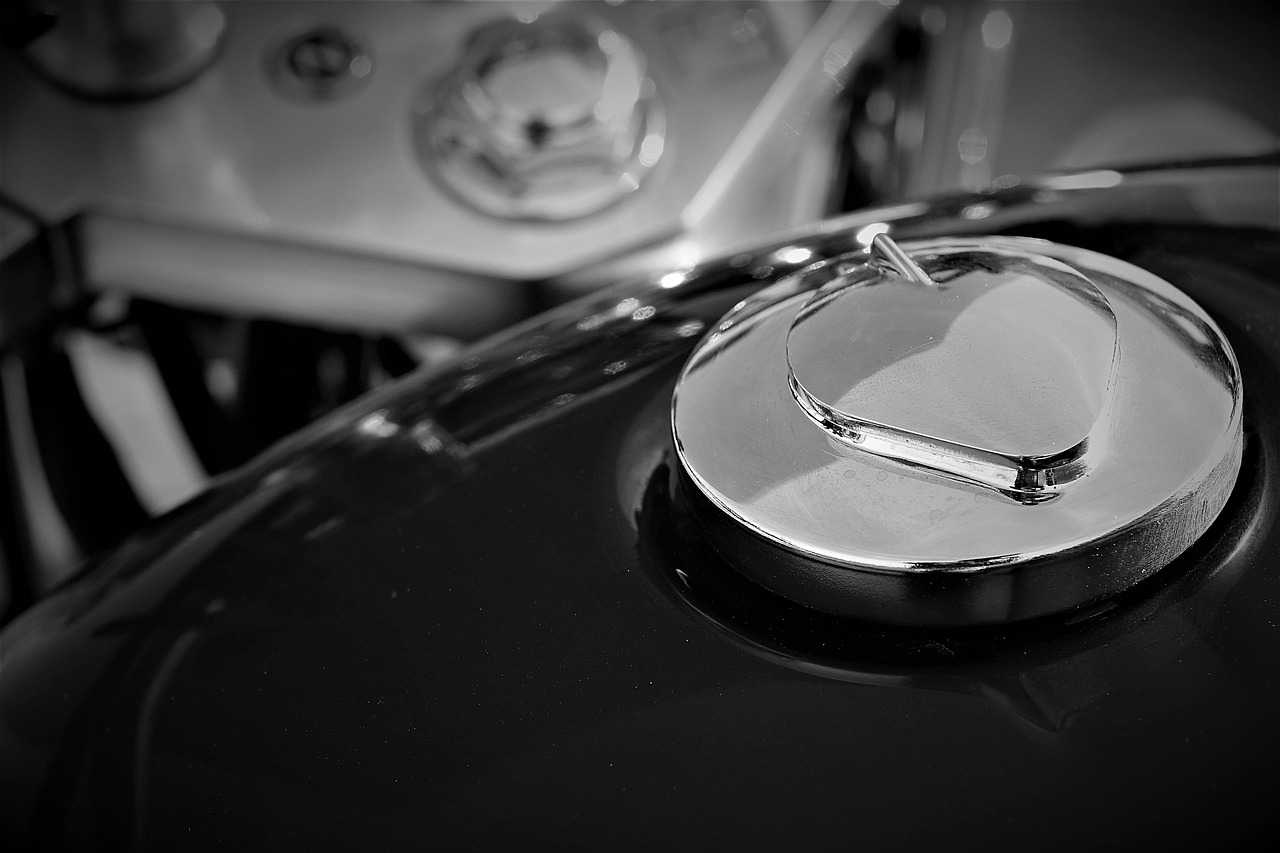The Honda Accord has long been a popular choice among sedan enthusiasts, known for its blend of performance, comfort, and reliability. A key aspect that potential buyers often consider is the vehicle’s drivetrain configuration. In this article, we will explore whether the Honda Accord is front-wheel drive, delve into its performance attributes, and compare it with other vehicles to provide a comprehensive understanding for prospective buyers.
Front-wheel drive (FWD) is a drivetrain layout where the engine’s power is directed to the front wheels. This configuration is widely favored in compact and midsize cars due to its advantages in fuel efficiency and handling characteristics. FWD systems tend to be lighter and more cost-effective, making them an appealing choice for everyday drivers.
Yes, the Honda Accord is primarily a front-wheel-drive vehicle. This design choice significantly contributes to the Accord’s overall fuel efficiency and handling capabilities. Many buyers gravitate towards the Accord for its practicality without sacrificing performance.
The front-wheel drive system influences a vehicle’s performance in several ways:
- Traction: FWD vehicles typically offer better traction during acceleration, especially on slippery surfaces.
- Handling Dynamics: The weight distribution in FWD vehicles enhances stability during cornering, making them easier to control.
Understanding these effects can help buyers make informed decisions based on their driving needs.
The Honda Accord benefits from its FWD configuration in multiple ways:
- Fuel Efficiency: The Accord generally achieves superior fuel economy compared to its all-wheel-drive counterparts, making it an excellent choice for budget-conscious consumers.
- Spacious Interior: The FWD layout allows for a more spacious cabin, providing comfort for passengers and ample cargo space.
While FWD has numerous advantages, there are also some drawbacks:
- Understeer: FWD vehicles can suffer from understeer during aggressive cornering, which may concern performance-oriented drivers.
- Performance Limitations: In high-power scenarios, FWD may struggle to deliver the same level of performance as all-wheel-drive systems.
All-wheel drive (AWD) systems are often compared to FWD. Understanding the differences between these drivetrains can aid consumers in choosing the option that best suits their lifestyle:
- When to Choose FWD Over AWD: For urban driving and moderate climates, FWD is typically sufficient. Buyers may find that the Accord’s FWD capabilities meet their needs without the added complexity of AWD.
- Benefits of AWD for Honda Accord Models: While most Accords are FWD, some newer models may offer AWD, which can enhance traction and stability in adverse weather conditions.
The Honda Accord is available in various trims, each featuring specific drivetrain configurations:
- Popular Trims: Models such as the LX, Sport, and Touring offer diverse features and performance options, allowing buyers to select the right fit for their needs.
- Technological Enhancements: Modern Accords come equipped with advanced technologies that improve FWD performance, ensuring a safer and more enjoyable driving experience.
In summary, understanding whether the Honda Accord’s front-wheel-drive configuration aligns with your driving needs will help you make an informed decision. Consider your priorities in performance, efficiency, and driving conditions when evaluating this popular sedan.
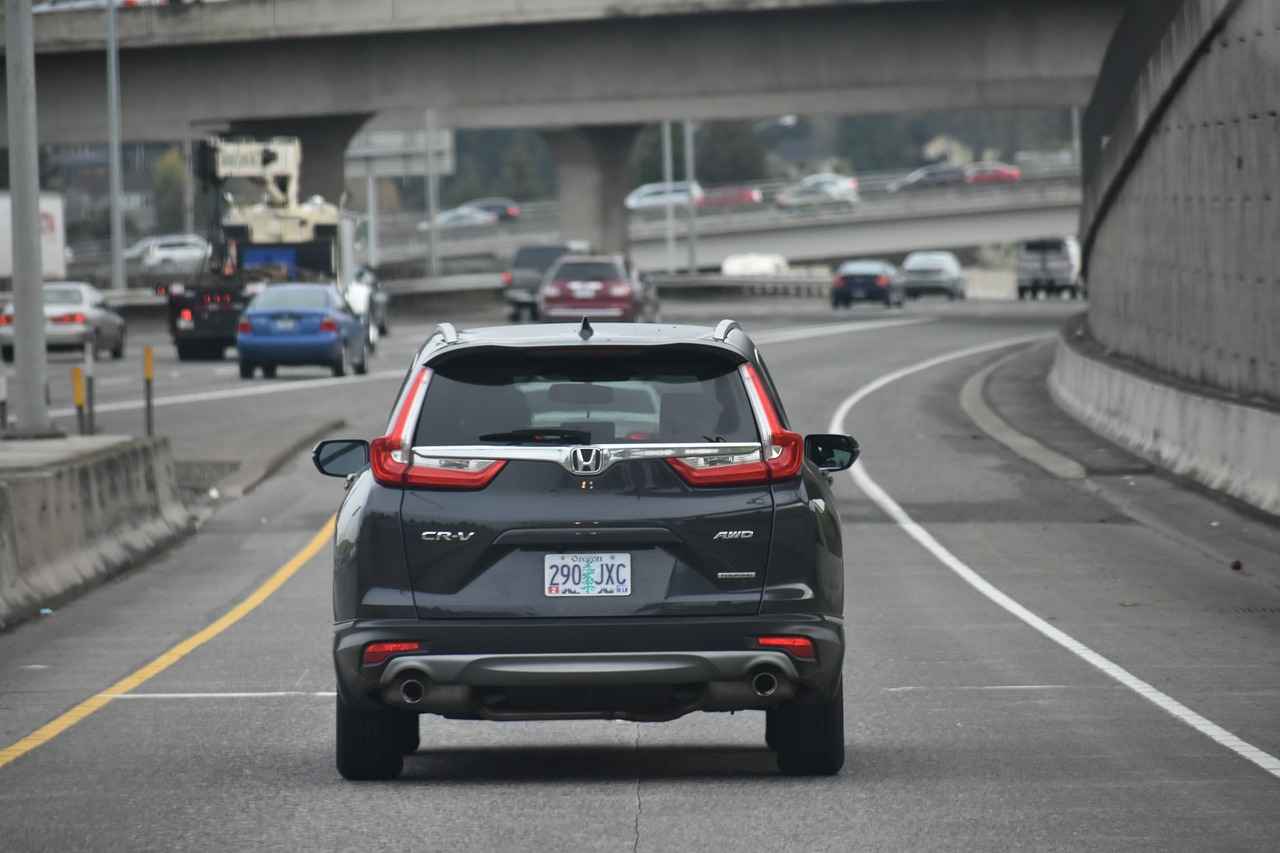
What is Front-Wheel Drive?
Front-wheel drive (FWD) is a widely used drivetrain layout in the automotive industry, where the engine’s power is transmitted directly to the front wheels. This configuration has gained popularity for its numerous benefits, particularly in compact and midsize vehicles. In this article, we will delve deeper into what FWD entails, its advantages, disadvantages, and how it compares to other drivetrain layouts like all-wheel drive (AWD).
FWD vehicles are often celebrated for their efficiency and handling characteristics. By placing the engine and transmission at the front of the vehicle, manufacturers can achieve a more compact design, which aids in reducing overall weight. This weight distribution also contributes to improved fuel economy, making FWD a cost-effective choice for everyday drivers.
One of the significant benefits of FWD is the improved traction during acceleration. Since the weight of the engine is over the front wheels, they are less likely to lose grip compared to rear-wheel drive (RWD) vehicles. This is especially beneficial in adverse weather conditions such as rain or snow, where maintaining control is crucial. Furthermore, FWD vehicles tend to exhibit understeer rather than oversteer, making them easier to handle for less experienced drivers.
- Fuel Efficiency: FWD vehicles generally consume less fuel due to their lighter weight and more efficient drivetrain layout.
- Interior Space: The absence of a driveshaft running to the rear wheels allows for more cabin space, providing a roomier interior for passengers and cargo.
- Cost-Effectiveness: FWD systems are typically less expensive to manufacture and maintain, making them an attractive option for budget-conscious consumers.
- Performance Limitations: While FWD is suitable for daily driving, it may not perform as well as AWD or RWD in high-performance scenarios.
- Understeer: Although easier to handle, FWD vehicles can suffer from understeer, especially in high-speed cornering situations.
- Less Traction in Off-Road Conditions: FWD is not ideal for off-road driving or extreme weather conditions compared to AWD systems.
When considering drivetrain options, many potential buyers wonder about the differences between FWD and AWD. While FWD is often sufficient for urban environments and moderate climates, AWD provides enhanced traction and stability, making it a better choice for those living in areas with harsh winters or rugged terrains.
Ultimately, whether FWD is the best option depends on your driving needs and lifestyle. If you prioritize fuel efficiency, a spacious interior, and ease of handling, FWD vehicles like the Honda Accord may be an excellent fit. However, if you frequently drive in challenging conditions or require high-performance capabilities, exploring AWD options might be worthwhile.
In summary, understanding the intricacies of front-wheel drive can significantly impact your vehicle choice. With its blend of efficiency, handling, and cost-effectiveness, FWD remains a popular choice for many drivers. Whether you’re commuting to work or embarking on family road trips, knowing how FWD aligns with your needs can help you make an informed decision.

Is the Honda Accord FWD?
The Honda Accord is a well-known name in the sedan market, praised for its blend of performance, comfort, and efficiency. One of the key features that potential buyers often inquire about is its drivetrain configuration. This article will delve into the specifics of whether the Honda Accord is front-wheel drive (FWD), as well as the benefits and drawbacks of this design.
Front-wheel drive (FWD) is a vehicle configuration where the engine’s power is sent to the front wheels. This layout is favored for its fuel efficiency and handling characteristics, particularly in sedans like the Honda Accord. By placing the engine and transmission at the front, manufacturers can achieve a lighter overall vehicle weight, which contributes to better fuel economy.
Yes, the Honda Accord is primarily designed as a front-wheel drive vehicle. This configuration not only enhances its fuel efficiency but also improves its handling dynamics, making it a popular choice among sedan buyers who prioritize both practicality and performance.
The front-wheel drive system significantly influences various performance aspects of the Honda Accord. For instance, FWD can improve traction during acceleration because the weight of the engine is over the front wheels, allowing for better grip. However, it’s essential to note that this configuration may also lead to understeer, especially in high-speed cornering situations.
- Fuel Efficiency: FWD vehicles like the Accord typically achieve better gas mileage due to their lighter weight and efficient drivetrain layout.
- Interior Space: The FWD design allows for a more spacious cabin, providing ample room for passengers and cargo.
- Handling Stability: The front-wheel drive system enhances stability during cornering, making the Accord easier to handle in various driving conditions, including rain and snow.
While the Honda Accord primarily features a front-wheel drive system, some models may offer all-wheel drive (AWD) as an option. AWD systems can provide enhanced traction and stability, particularly in adverse weather conditions. However, for most urban driving scenarios and moderate climates, FWD is generally sufficient.
The Honda Accord is available in various trims, including the LX, Sport, and Touring, each offering unique features and performance options. Understanding these trims can help buyers choose the model that best fits their lifestyle and budget.
Modern Honda Accords come equipped with advanced technology designed to enhance the performance of the FWD system. Features such as electronic stability control and traction control systems work in tandem with the FWD layout to provide a safer and more enjoyable driving experience.
If you primarily drive in urban environments with moderate weather conditions, the FWD configuration of the Honda Accord may be the ideal choice. It offers sufficient performance without the added complexity and weight of an AWD system.
In summary, the Honda Accord’s front-wheel drive layout is a significant factor in its appeal, offering a combination of fuel efficiency, spaciousness, and stable handling. Understanding these attributes can assist potential buyers in making an informed decision tailored to their specific driving needs.

How Does FWD Affect Performance?
The performance of a vehicle is significantly influenced by its drivetrain configuration. Among the various setups, front-wheel drive (FWD) is widely recognized for its unique characteristics that impact driving dynamics. In this section, we will delve into how FWD affects performance, particularly in vehicles like the Honda Accord, and why understanding these effects is essential for potential buyers.
Front-wheel drive vehicles, such as the Honda Accord, distribute the engine’s power to the front wheels. This layout can enhance performance in several ways:
- Traction During Acceleration: FWD vehicles tend to have better traction when accelerating, especially on slippery surfaces. The weight of the engine over the front wheels increases grip, reducing the chances of wheel spin.
- Handling Dynamics: FWD vehicles generally exhibit predictable handling characteristics. The steering and power delivery are both managed by the front wheels, allowing for a more cohesive driving experience.
- Stability in Adverse Conditions: FWD systems provide enhanced stability during inclement weather. The front wheels’ drive helps maintain control during rain or snow, which is crucial for safety.
Another significant advantage of FWD in vehicles like the Honda Accord is its contribution to fuel efficiency. The lighter weight of the drivetrain and the compact layout often result in better mileage compared to all-wheel drive (AWD) systems. This efficiency is particularly appealing to buyers who prioritize cost-effective commuting.
While FWD offers various benefits, it is not without its drawbacks. Understanding these limitations is vital for potential buyers:
- Understeer in High-Speed Turns: FWD vehicles can experience understeer, where the car continues straight instead of turning when cornering at high speeds. This can be disconcerting for drivers who enjoy spirited driving.
- Power Limitations: In high-performance scenarios, FWD systems may struggle to deliver power effectively, especially in vehicles with higher horsepower. This can lead to torque steer, where the car pulls to one side during acceleration.
To make an informed choice, it’s essential to compare FWD with other drivetrain configurations, such as all-wheel drive (AWD) and rear-wheel drive (RWD). Each system has its own set of advantages and disadvantages:
- AWD: Provides better traction and stability in various conditions but often at the cost of fuel efficiency.
- RWD: Offers superior handling and performance in sports cars but can be less stable in adverse weather.
FWD vehicles like the Honda Accord are ideal for urban drivers and families. They excel in daily commuting, offering a balance of performance, efficiency, and practicality. Buyers living in milder climates or those who prioritize fuel economy over high-performance driving will find FWD particularly appealing.
Understanding how front-wheel drive affects performance is crucial for potential buyers. By weighing the advantages and disadvantages of FWD, along with considering personal driving needs and conditions, buyers can make informed decisions that align with their lifestyle. The Honda Accord, with its well-rounded performance attributes, remains a strong contender in the midsize sedan market.
Advantages of FWD in the Honda Accord
The Honda Accord is a well-regarded midsize sedan that has captured the hearts of many drivers. One of its standout features is its front-wheel drive (FWD) configuration, which offers a range of advantages that appeal to both daily commuters and families. In this section, we will explore the various benefits of FWD in the Honda Accord, shedding light on why this vehicle remains a popular choice in its class.
One of the most significant advantages of the Honda Accord’s front-wheel drive system is its improved fuel efficiency. FWD vehicles tend to be lighter than their all-wheel-drive counterparts, which translates into better mileage. The Accord’s efficient drivetrain allows it to achieve impressive fuel economy ratings, making it an ideal option for those who commute daily or frequently travel long distances. This fuel efficiency not only saves money at the pump but also reduces the vehicle’s overall carbon footprint.
The FWD layout of the Honda Accord also contributes to its spacious interior design. By placing the engine and transmission at the front, more room is available for passengers and cargo. The Accord is known for its comfortable seating and ample legroom, making it a great choice for families or anyone who values comfort during their travels. Additionally, the trunk space is generous, accommodating everything from groceries to luggage with ease.
Another advantage of the Honda Accord’s FWD system is its enhanced handling and stability. FWD vehicles typically offer better traction when accelerating, especially in wet or slippery conditions. This characteristic is particularly beneficial for drivers who live in areas with inclement weather. The Accord’s design helps it maintain stability during cornering, giving drivers confidence in their handling capabilities. This stability is crucial for safety, allowing for smoother driving experiences in various conditions.
When it comes to maintenance costs, FWD vehicles like the Honda Accord often prove to be more cost-effective. The simpler drivetrain layout means fewer components that can break or require servicing. This can lead to lower repair bills and less time spent in the shop, making the Accord an appealing choice for budget-conscious consumers.
For urban dwellers, the Honda Accord’s FWD configuration is particularly advantageous. Maneuvering through city streets, navigating tight parking spaces, and handling stop-and-go traffic are all made easier with FWD. The Accord’s responsive steering and compact size enhance its agility, making it a practical choice for city driving.
In summary, the advantages of the Honda Accord’s front-wheel drive system are numerous and significant. From fuel efficiency and spacious interiors to enhanced handling and cost-effectiveness, FWD makes the Accord a compelling option for a wide range of drivers. Whether you are a daily commuter or a family looking for a reliable vehicle, the Honda Accord’s FWD configuration is designed to meet your needs effectively.
Fuel Efficiency and Economy
The fuel efficiency of a vehicle is a significant consideration for many consumers, especially in today’s economy where gas prices can fluctuate dramatically. The Honda Accord, known for its reliability and performance, stands out in this regard due to its front-wheel-drive (FWD) configuration. This article delves into how FWD contributes to the Accord’s fuel economy, making it an attractive option for budget-conscious drivers.
Front-wheel-drive vehicles like the Honda Accord typically achieve better fuel economy compared to their all-wheel-drive (AWD) counterparts. This advantage arises from several key factors:
- Lighter Weight: FWD systems are generally lighter than AWD systems, which means less weight to move and better fuel efficiency.
- Efficient Drivetrain Layout: The engine and transmission are positioned closer to the front wheels, reducing energy loss and improving power delivery.
- Reduced Drag: With the absence of a rear driveshaft and differential, FWD vehicles experience less aerodynamic drag, enhancing overall efficiency.
The Honda Accord’s fuel economy ratings reflect its efficient design. Depending on the model year and engine option, the Accord can achieve impressive miles per gallon (MPG) ratings. For instance, recent models equipped with a turbocharged engine can offer up to 30 MPG in the city and 38 MPG on the highway, making it a top choice for daily commuters.
When compared to other vehicles in its class, the Honda Accord consistently ranks high in fuel efficiency. Competitors such as the Toyota Camry and Nissan Altima also offer FWD configurations, but the Accord’s combination of power and efficiency often gives it the edge.
| Model | City MPG | Highway MPG |
|---|---|---|
| Honda Accord | 30 | 38 |
| Toyota Camry | 28 | 39 |
| Nissan Altima | 28 | 37 |
For many drivers, fuel economy is not just about saving money at the pump; it also reflects a commitment to environmental sustainability. Vehicles like the Honda Accord, with their efficient FWD systems, produce fewer emissions compared to less efficient models. This makes the Accord a responsible choice for eco-conscious consumers.
While the FWD configuration significantly contributes to the Honda Accord’s fuel efficiency, other factors also play a crucial role:
- Driving Habits: Smooth acceleration and braking can improve fuel economy.
- Maintenance: Regular servicing, including oil changes and tire rotations, helps maintain optimal performance.
- Load and Cargo: Carrying excess weight can reduce fuel efficiency, so it’s wise to avoid unnecessary loads.
In conclusion, the Honda Accord’s front-wheel-drive system is a key factor in its impressive fuel efficiency, making it a practical choice for consumers looking to save on gas. Coupled with its reliability and performance, the Accord stands out as a leader in the midsize sedan market, appealing to a wide range of drivers.
Handling and Stability
The Honda Accord is widely recognized for its impressive handling and stability, particularly due to its front-wheel-drive (FWD) system. This drivetrain configuration not only enhances the car’s performance but also plays a crucial role in ensuring safety during various driving conditions. In this section, we will delve deeper into how the Accord’s FWD system contributes to its overall handling and stability.
Handling refers to how well a vehicle responds to driver inputs, especially during cornering and maneuvering. A car that handles well provides a sense of confidence and control, which is essential for safe driving. For the Honda Accord, the FWD system significantly contributes to its handling characteristics.
The front-wheel-drive system enhances stability during cornering by distributing the vehicle’s weight more evenly. When a driver turns, the front wheels are responsible for both steering and power delivery. This dual function allows the Accord to maintain better traction and control, especially in challenging conditions such as:
- Rain: Wet surfaces can cause rear-wheel-drive vehicles to lose traction, but the Accord’s FWD system helps keep the front wheels grounded.
- Snow: In snowy conditions, the weight of the engine over the front wheels improves grip, making it easier to navigate slippery roads.
One of the standout features of the Honda Accord’s FWD system is its ability to enhance cornering performance. During turns, the front wheels pull the car into the corner, which reduces the likelihood of understeer—a common issue in rear-wheel-drive vehicles. This characteristic allows drivers to feel more connected to the road, providing a sense of confidence when navigating tight bends.
The weight distribution in a front-wheel-drive vehicle like the Accord is typically more favorable for stability. The engine’s placement over the front wheels helps maintain a lower center of gravity, which is essential for:
- Reducing body roll: This leads to a more stable ride, especially when taking corners at higher speeds.
- Improving traction: With more weight on the front wheels, the Accord can accelerate more effectively out of turns.
Modern Honda Accords are equipped with advanced technology that further enhances their handling and stability. Features such as Electronic Stability Control (ESC) and Anti-lock Braking System (ABS) work in conjunction with the FWD system to provide a safer driving experience. These technologies help prevent skidding and maintain control during sudden maneuvers.
Drivers who have experienced the Honda Accord often praise its ability to handle various driving conditions with ease. Whether navigating through city streets or taking on winding country roads, the FWD system delivers a balanced and responsive driving experience. The Accord’s design caters to both daily commuters and families, making it a versatile choice for a wide range of drivers.
In summary, the front-wheel-drive system in the Honda Accord significantly enhances its handling and stability, making it a reliable option for those who prioritize safety and performance. With its ability to maintain traction in adverse conditions and its advanced technological features, the Accord stands out as a top choice in the sedan market.
Disadvantages of FWD in the Honda Accord
When considering the Honda Accord, it is essential to examine all aspects of its front-wheel drive (FWD) system. While this drivetrain configuration offers numerous advantages, it also presents certain drawbacks that potential buyers should carefully evaluate. In this section, we will delve into the disadvantages of FWD in the Honda Accord, providing a comprehensive overview to help you make an informed decision.
FWD systems, while popular for their efficiency and handling, can exhibit some limitations in specific driving scenarios. Here are a few key disadvantages:
- Understeer During Cornering: One of the most notable drawbacks of FWD is the tendency for understeer. This occurs when the front wheels lose traction while turning, causing the vehicle to continue straight instead of following the intended path. This can be particularly noticeable during aggressive cornering or in slippery conditions.
- Reduced Performance in High-Power Situations: FWD vehicles, including the Honda Accord, may struggle to handle high-power outputs effectively. When accelerating rapidly or under heavy load, the front wheels can struggle to maintain grip, leading to potential performance issues.
- Weight Distribution Challenges: FWD vehicles typically have a front-heavy weight distribution, which can affect handling dynamics. This configuration may lead to a less balanced feel, especially during high-speed maneuvers.
- Limited Off-Road Capability: While the Honda Accord excels in urban and highway conditions, its FWD system limits its off-road capabilities. Buyers who frequently encounter rugged terrain may find FWD insufficient for their needs.
Understanding these limitations is crucial for potential buyers. If you prioritize performance and handling in high-speed scenarios, you might want to consider alternatives such as all-wheel drive (AWD) or rear-wheel drive (RWD) options. However, if your driving typically involves city commuting and moderate weather conditions, the Honda Accord’s FWD may still be a suitable choice.
It’s essential to balance the advantages and disadvantages of FWD in the Honda Accord. While the drawbacks mentioned above are valid, the Accord also offers significant benefits, such as fuel efficiency, spacious interiors, and ease of handling in everyday driving conditions. These factors make it a popular choice among many drivers.
In conclusion, while the Honda Accord’s FWD system has its disadvantages, understanding these limitations can help you assess your priorities effectively. If you value fuel efficiency and practical handling for daily driving, the Accord remains an excellent option. However, for those who demand high-performance capabilities and superior handling in all conditions, exploring other drivetrain configurations may be worthwhile.
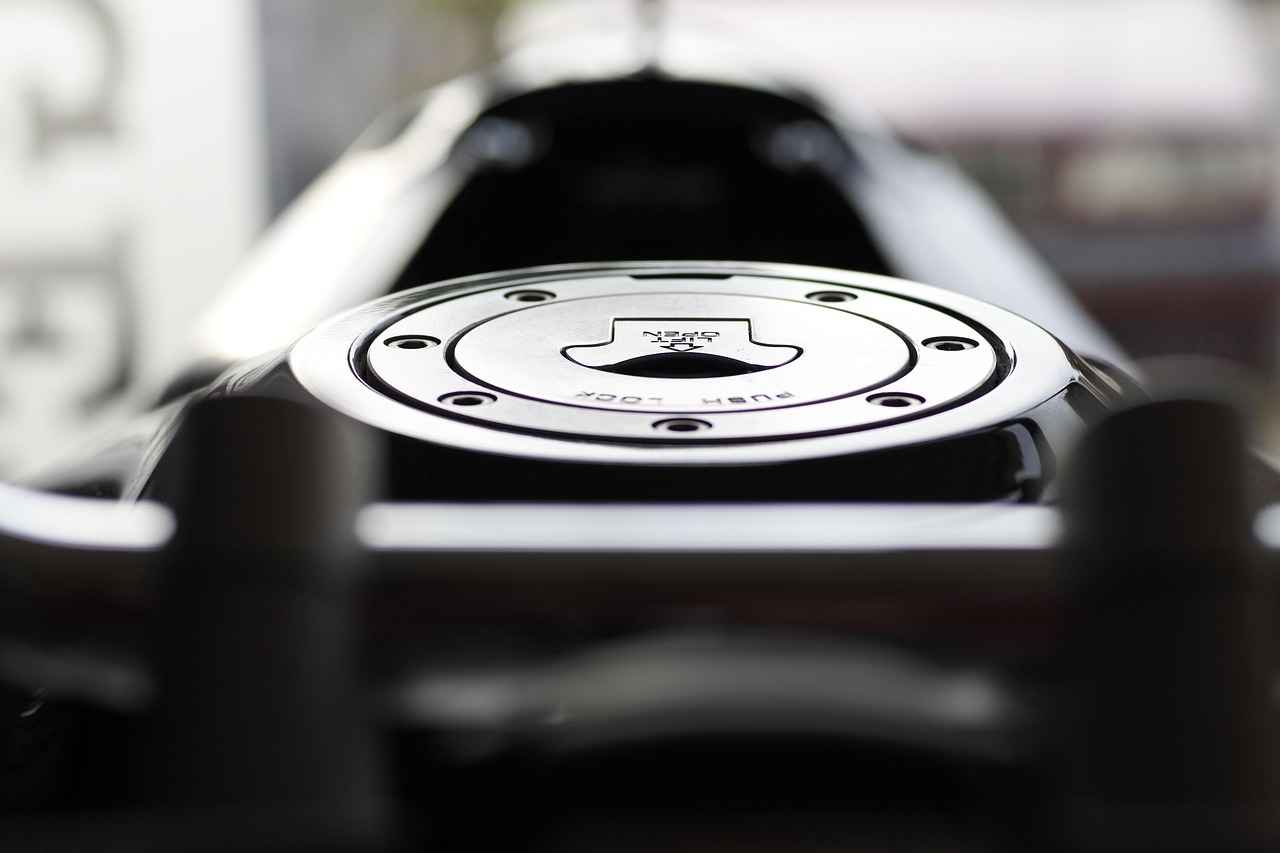
Comparing FWD and AWD in the Honda Accord
When considering a vehicle like the Honda Accord, understanding the differences between Front-Wheel Drive (FWD) and All-Wheel Drive (AWD) is crucial for making an informed decision. Each drivetrain offers unique advantages and disadvantages that cater to different driving needs and conditions.
FWD systems route power to the front wheels, which is beneficial for fuel efficiency and handling, especially in urban environments. In contrast, AWD distributes power to all four wheels, providing enhanced traction and stability in challenging conditions such as snow or mud.
FWD is often the preferred choice for many Accord buyers due to its fuel efficiency and lightweight design. This drivetrain configuration allows for better fuel economy, making it an ideal option for daily commuters looking to save on gas expenses.
- Cost-Effectiveness: FWD vehicles generally have lower manufacturing costs, which can translate to lower purchase prices for consumers.
- Space Efficiency: The FWD layout allows for more interior space, providing a comfortable environment for passengers and cargo.
- Handling in Dry Conditions: FWD vehicles tend to offer better handling dynamics in dry conditions, making them enjoyable to drive.
While FWD is sufficient for most drivers, those living in regions with harsh winters or frequent rain might benefit from an AWD system. AWD enhances traction and control, making it easier to navigate slippery roads.
- Enhanced Traction: AWD provides power to all four wheels, improving grip on wet or icy surfaces.
- Stability in Various Conditions: Drivers can feel more secure in adverse weather, which can reduce the risk of accidents.
- Off-Road Capability: For those who venture off the beaten path, AWD can offer better performance on rough terrain.
Performance is a significant factor when choosing between FWD and AWD. FWD vehicles, like the Honda Accord, often exhibit understeer during aggressive cornering, while AWD systems can help mitigate this effect by distributing power more evenly.
FWD Pros:- Better fuel economy- Lower purchase price- More interior spaceFWD Cons:- Limited traction in adverse conditions- Potential for understeerAWD Pros:- Superior traction in challenging weather- Enhanced stability- Better off-road capabilitiesAWD Cons:- Higher costs (both purchase and maintenance)- Slightly reduced fuel efficiency
Ultimately, the choice between FWD and AWD in the Honda Accord depends on your driving habits and environmental conditions. If you primarily drive in urban settings with mild weather, FWD may be the most practical option. However, if you frequently encounter harsh weather or plan to drive in rural areas, considering an AWD model could provide the additional security and performance you need.
In conclusion, understanding the differences between FWD and AWD can significantly impact your driving experience with the Honda Accord. Whether you prioritize fuel efficiency or all-weather capability, assessing your personal needs will lead you to the right decision.
When to Choose FWD Over AWD
The decision between Front-Wheel Drive (FWD) and All-Wheel Drive (AWD) can significantly impact your driving experience, especially when considering a vehicle like the Honda Accord. Understanding when to choose FWD over AWD is crucial for potential buyers who want to align their vehicle choice with their specific driving needs and conditions.
FWD systems are particularly advantageous in urban environments. The layout of FWD vehicles distributes weight over the front wheels, enhancing traction during acceleration, which is vital when navigating city streets. Additionally, the compact design of FWD vehicles allows for more interior space, making them ideal for city dwellers who may prioritize passenger comfort and cargo capacity.
In regions with moderate climates, where severe weather conditions are infrequent, FWD vehicles like the Honda Accord typically perform exceptionally well. The predictable handling characteristics of FWD provide a sense of stability during routine driving. Furthermore, the absence of complex AWD systems means lower maintenance costs and improved fuel efficiency, which is a significant consideration for budget-conscious buyers.
FWD vehicles generally come with a lower price point compared to their AWD counterparts. This affordability extends beyond the initial purchase, as FWD models often yield better fuel economy and lower insurance rates. For individuals who primarily drive in urban settings or moderate climates, the overall cost savings associated with FWD can be substantial.
One of the standout features of FWD vehicles is their superior maneuverability. The engine’s weight over the front wheels allows for better control, particularly when cornering. This characteristic is especially beneficial in urban areas where tight turns and quick stops are common. Drivers may find that the Honda Accord’s FWD system provides a more responsive and engaging driving experience in these scenarios.
- Daily Commutes: FWD is ideal for daily commuting, offering a smooth ride and efficient fuel consumption.
- Parking: The compact nature of FWD vehicles makes them easier to park in crowded urban areas.
- Cost Savings: Lower maintenance and fuel costs make FWD a practical choice for city drivers.
Safety is a top priority for many drivers. FWD vehicles like the Honda Accord often provide better traction in wet conditions compared to rear-wheel-drive (RWD) vehicles. While they may not perform as well as AWD vehicles in extreme weather, the stability offered by FWD systems is generally sufficient for most urban driving scenarios.
Ultimately, the choice between FWD and AWD should be based on individual driving needs and conditions. For urban drivers and those in moderate climates, the Honda Accord’s FWD capabilities can be more than adequate, delivering a balance of efficiency, performance, and comfort without the complexity of AWD systems. By considering factors like cost, handling, and safety, potential buyers can make an informed decision that aligns with their lifestyle.
Benefits of AWD for Honda Accord Models
The Honda Accord is a well-regarded midsize sedan known for its reliability, efficiency, and performance. While most models feature a front-wheel-drive (FWD) configuration, certain variants offer all-wheel drive (AWD) as an option. This article delves into the , exploring how this drivetrain can enhance driving experience, especially in challenging weather conditions.
All-wheel drive systems distribute power to all four wheels, providing enhanced traction and stability. Here are some key benefits:
- Improved Traction: AWD significantly enhances traction on slippery surfaces such as snow, ice, or rain. This is particularly beneficial for drivers in regions that experience harsh winters.
- Enhanced Stability: By distributing power to all wheels, AWD helps maintain stability during cornering and acceleration, reducing the likelihood of skidding.
- Increased Confidence: Drivers often feel more secure and confident when navigating through adverse weather conditions, knowing that their vehicle is equipped to handle challenging terrains.
While FWD is adequate for many drivers, those who frequently encounter inclement weather should consider opting for AWD. Here are some scenarios where AWD is a preferable choice:
- Frequent Winter Driving: For those living in areas with heavy snowfall or icy roads, AWD provides the necessary grip to navigate safely.
- Outdoor Enthusiasts: If you enjoy outdoor activities that require driving on unpaved roads or trails, the added capability of AWD can be advantageous.
- Long-Distance Commuters: For individuals who drive long distances, especially in unpredictable weather, AWD can enhance safety and comfort.
When considering the Honda Accord, it’s essential to understand how AWD stacks up against FWD:
| Feature | FWD | AWD |
|---|---|---|
| Traction | Good in dry conditions | Excellent in wet or slippery conditions |
| Fuel Efficiency | Typically higher | Generally lower due to added weight |
| Cost | Less expensive | Higher initial cost and maintenance |
Modern Honda Accord models equipped with AWD come with advanced technologies that optimize performance:
- Intelligent AWD Systems: These systems can automatically adjust power distribution based on driving conditions, ensuring optimal performance.
- Traction Control: This feature helps prevent wheel spin during acceleration, enhancing stability and control.
- Adaptive Suspension: Some AWD models may feature adaptive suspension systems that adjust to road conditions, improving ride comfort and handling.
In conclusion, while the Honda Accord is primarily known for its front-wheel-drive configuration, the availability of AWD in select models offers significant benefits for those who drive in challenging conditions. Whether it’s improved traction, enhanced stability, or increased confidence on the road, AWD can be a valuable feature for many drivers. Evaluating your driving habits and the environment in which you operate your vehicle will help you determine if AWD is the right choice for your Honda Accord.
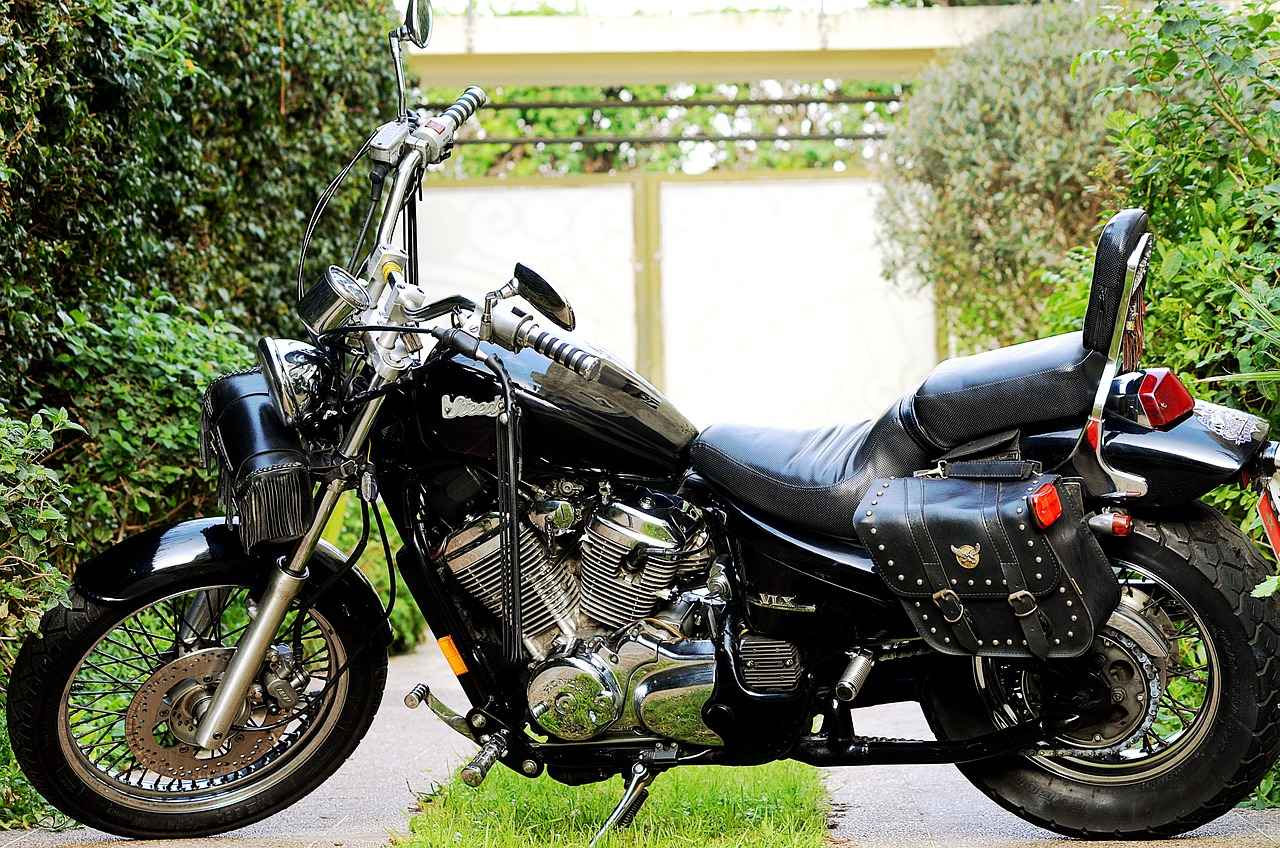
Honda Accord Trims and Drivetrain Options
The Honda Accord has long been celebrated for its reliability, comfort, and advanced features. One of the key aspects that potential buyers consider is the variety of trims and drivetrain options available. Understanding these configurations is essential for making an informed decision that aligns with individual preferences and driving needs.
The Honda Accord is offered in several trims, each designed to cater to different tastes and requirements. The most popular trims include:
- LX: The base model, equipped with essential features, providing excellent value.
- Sport: This trim adds sporty aesthetics and upgraded technology, appealing to younger buyers.
- EX-L: With additional luxury features, the EX-L trim focuses on comfort and convenience.
- Touring: The top-of-the-line trim, packed with premium features and advanced safety technologies.
Understanding the drivetrain options is crucial for buyers. The Honda Accord predominantly features a front-wheel drive (FWD) layout, which enhances fuel efficiency and handling. However, some models may also offer an all-wheel drive (AWD) option, particularly beneficial in regions with harsh winter conditions.
Each trim level not only varies in price but also in performance attributes and available features:
- LX: Equipped with a standard engine that balances power and efficiency, making it ideal for daily commuting.
- Sport: This trim typically features a more powerful engine and sport-tuned suspension, enhancing driving dynamics.
- EX-L: Offers a more refined driving experience with additional sound insulation and comfort features.
- Touring: Comes with the most powerful engine options and advanced driver-assistance systems, ensuring a safe and enjoyable ride.
The FWD configuration of the Honda Accord provides several advantages:
- Fuel Efficiency: FWD vehicles generally weigh less, leading to better fuel economy, which is a significant consideration for many buyers.
- Handling: The weight distribution in FWD vehicles enhances stability during cornering, making the Accord easier to handle in various weather conditions.
- Interior Space: FWD allows for a more spacious cabin layout, providing ample legroom and cargo space.
While FWD has its benefits, there are some drawbacks to be aware of:
- Understeer: FWD vehicles can experience understeer, particularly in high-speed cornering situations.
- Performance Limitations: In high-power scenarios, such as aggressive acceleration, FWD may not perform as well as all-wheel-drive systems.
When selecting the right Honda Accord trim and drivetrain, consider the following:
- Your Driving Conditions: If you live in a region with mild weather, FWD may be sufficient. However, for areas prone to snow or heavy rain, consider the AWD option.
- Personal Preferences: Determine what features are most important to you, such as luxury, technology, or performance enhancements.
- Budget: Assess your budget and consider the long-term costs associated with fuel economy and maintenance for each trim.
In summary, the Honda Accord offers a variety of trims and drivetrain options that cater to diverse consumer needs. By understanding the differences between these configurations, buyers can make informed decisions that enhance their driving experience.
Popular Honda Accord Trims
The Honda Accord is a well-regarded sedan that offers a variety of trims, each designed to cater to different preferences and needs. Understanding the distinctions between these trims is essential for potential buyers, as it can significantly influence their driving experience, comfort, and overall satisfaction with the vehicle.
The Honda Accord is available in several trims, including the LX, Sport, and Touring. Each trim level comes with unique features and performance options, allowing buyers to choose one that best fits their lifestyle and budget.
The Honda Accord LX serves as the entry-level trim, offering a solid foundation of features. It typically includes:
- Standard Safety Features: Honda Sensing suite, which includes adaptive cruise control and collision mitigation braking.
- Comfort: Spacious interior with cloth seating and a user-friendly infotainment system.
- Fuel Efficiency: Excellent fuel economy, making it a great choice for daily commuters.
This trim is ideal for buyers seeking a reliable and economical vehicle without the need for luxury features.
The Sport trim elevates the driving experience with enhanced performance and stylish design elements. Key features include:
- Sporty Design: Unique exterior styling, including larger wheels and a more aggressive front fascia.
- Upgraded Technology: A more advanced sound system and larger touchscreen display.
- Performance Enhancements: A more powerful engine option for those seeking a spirited driving experience.
Buyers who want a balance between practicality and excitement will find the Sport trim appealing.
For those desiring a more luxurious experience, the Touring trim offers a premium package that includes:
- Luxury Features: Leather-trimmed seats, heated front seats, and a premium audio system.
- Advanced Technology: Navigation system and additional driver-assistance features.
- Performance: Optional turbocharged engine for enhanced power and efficiency.
This trim is perfect for buyers looking for a sophisticated vehicle that doesn’t compromise on comfort or technology.
When selecting the right Honda Accord trim, consider the following factors:
- Budget: Determine how much you are willing to spend, as higher trims come with more features but at a higher price point.
- Driving Needs: Assess your driving habits. If you commute frequently, the LX may be sufficient. For those who enjoy a sportier drive, the Sport is ideal.
- Desired Features: Make a list of must-have features. If luxury and advanced technology are priorities, the Touring trim is worth considering.
By evaluating these elements, buyers can make an informed decision that aligns with their lifestyle and preferences.
The Honda Accord offers a diverse range of trims that cater to various needs and preferences. Whether you prioritize fuel efficiency, sporty performance, or luxurious features, there is an Accord trim that fits your requirements. By understanding the differences between the LX, Sport, and Touring trims, potential buyers can confidently choose the model that best suits their lifestyle.
Technological Features Enhancing FWD Performance
The modern Honda Accord is a testament to automotive innovation, particularly in its front-wheel-drive (FWD) configuration. This sophisticated design not only enhances the driving experience but also integrates advanced technology that optimizes performance, safety, and comfort.
Modern Honda Accords are equipped with a variety of technological features that significantly enhance the performance of the FWD system. These technologies work in harmony to improve traction, stability, and overall driving dynamics.
One notable feature is the Adaptive Cruise Control (ACC), which automatically adjusts the vehicle’s speed to maintain a safe distance from the car ahead. This not only enhances safety but also contributes to a more relaxed driving experience, especially during long commutes or highway travel.
The Electronic Stability Control (ESC) system is another critical technology that helps maintain traction and stability. By detecting loss of steering control, the system can apply brakes to individual wheels, helping drivers maintain control in slippery conditions. This is particularly beneficial for FWD vehicles like the Accord, as it enhances their performance during adverse weather.
The Traction Control System (TCS) works in conjunction with the FWD layout to prevent wheel spin during acceleration. This feature is especially useful when starting on wet or icy roads, allowing the Accord to provide a confident driving experience regardless of the conditions.
The Honda Sensing suite includes a range of advanced safety technologies, such as Collision Mitigation Braking System, Lane Keeping Assist, and Road Departure Mitigation. These features utilize sensors and cameras to monitor the surroundings, providing alerts and assistance to help prevent accidents. This level of safety integration makes the Accord a compelling option for families and safety-conscious drivers.
In addition to performance-enhancing technologies, the Honda Accord boasts a state-of-the-art infotainment system that keeps drivers connected and entertained. Features like Apple CarPlay and Android Auto allow seamless integration of smartphones, enabling hands-free calls, navigation, and music streaming. This connectivity not only enhances the driving experience but also promotes safer driving habits by minimizing distractions.
Modern Honda Accords are designed with fuel efficiency in mind, utilizing technologies such as Variable Cylinder Management (VCM) and Eco Assist. These systems optimize engine performance, allowing the vehicle to operate more efficiently, especially during city driving. This not only saves money at the pump but also reduces the overall environmental impact of driving.
The combination of advanced technologies in the Honda Accord significantly enhances its front-wheel-drive performance, making it a standout choice in the midsize sedan market. From safety features that protect occupants to systems that improve driving dynamics, these innovations contribute to a driving experience that is not only enjoyable but also secure. For those considering a reliable and technologically advanced sedan, the Honda Accord represents a compelling option that meets modern driving needs.

Conclusion: Is the Honda Accord Right for You?
When considering the Honda Accord, one crucial aspect to evaluate is its front-wheel-drive (FWD) configuration. This feature can significantly influence your overall driving experience. Ultimately, determining whether the Accord’s FWD setup aligns with your personal driving needs is essential for making an informed choice.
What Are Your Driving Priorities? Before diving into the specifics of the Accord’s performance, reflect on what you value most in a vehicle. Are you looking for fuel efficiency, performance, or handling? The Accord excels in various areas, making it a versatile option for many drivers.
Performance and Efficiency: The Honda Accord’s FWD system provides excellent fuel economy, particularly for daily commuting. With its lightweight design and efficient drivetrain, the Accord offers a smooth ride that is both economical and practical. For those who prioritize saving on gas, the Accord stands out as an ideal choice.
Driving Conditions: It’s also essential to consider the typical driving conditions you encounter. The Accord’s FWD configuration enhances stability and traction, especially during rainy or snowy conditions. This stability can be a crucial factor for those living in areas with unpredictable weather.
Comparing FWD with AWD: While the Accord primarily features FWD, some models may offer all-wheel drive (AWD). Understanding the differences between these systems is vital. FWD is typically sufficient for urban driving and moderate climates, while AWD provides enhanced traction for those in harsher conditions. Assess your local climate and driving habits to determine which drivetrain suits your lifestyle best.
Assessing Your Needs: If you frequently navigate city streets or highways, the Accord’s FWD configuration will likely meet your needs effectively. However, if you often drive in challenging conditions or require a vehicle for off-road adventures, you might want to explore other options, including AWD vehicles.
Technological Enhancements: Modern Honda Accords come equipped with advanced technologies that enhance FWD performance. Features such as adaptive cruise control and lane-keeping assist can provide added safety and convenience, making your drive more enjoyable.
Ultimately, understanding the Honda Accord’s FWD system in relation to your driving habits and preferences will help you make an informed decision. By considering factors like performance, efficiency, and typical driving conditions, you can determine if the Accord is the right fit for you. Remember, the right vehicle should not only meet your practical needs but also align with your lifestyle and driving expectations.
Frequently Asked Questions
- Is the Honda Accord a front-wheel drive vehicle?
Yes, the Honda Accord is primarily a front-wheel drive (FWD) vehicle. This drivetrain layout enhances its fuel efficiency and makes it a popular choice among sedan buyers.
- What are the benefits of front-wheel drive in the Honda Accord?
Front-wheel drive in the Honda Accord offers several advantages, including improved fuel economy, better handling stability, and a spacious interior, making it ideal for daily commuting and family use.
- Are there any disadvantages to the Honda Accord’s FWD system?
While FWD provides many benefits, it can also lead to understeer and may not perform as well in high-power situations. It’s essential to consider these factors based on your driving needs.
- How does the Honda Accord compare to all-wheel drive (AWD) vehicles?
FWD is typically sufficient for urban driving and moderate climates, whereas AWD offers enhanced traction and stability in adverse weather conditions. Choosing between them depends on your driving environment.
- What trims of the Honda Accord are available?
The Honda Accord comes in various trims, such as the LX, Sport, and Touring, each offering unique features and performance options to cater to different preferences and budgets.

